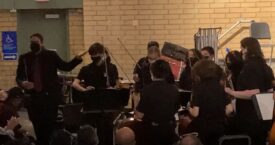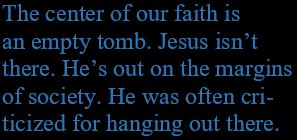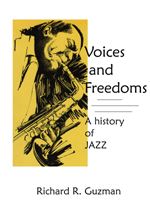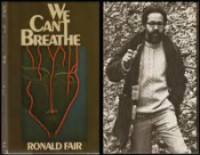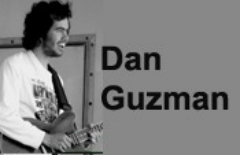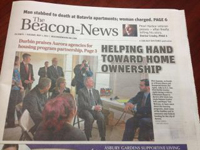This is one of a large series devoted to Chicago writers. These articles are expansions of ones written as introductions to two anthologies of Chicago writing I did: first, with David Starkey, Smokestacks and Skyscrapers, and second, my Black Writing from Chicago. See links at end to go to complete lists of the writers covered, and to the Chicago Literary Hall of Fame, a leading literary organization I am currently on the board of.
Over 700 people died of heat in Chicago’s 1995 heatwave, so this summer hasn’t been that bad, though its 25 days over 90 has bested the historic average by over a week, placing it in the top 20% of Chicago’s hottest. And then it just stopped. Suddenly we’re in the 60’s and 70’s before September, with night-time lows in the 50’s, even 40’s. Suddenly, a little nostalgia for summer creeps in, and that’s why I thought of Albert Halper’s “Young Writer Remembering Chicago,” excerpts of which David Starkey and I included in our book Smokestacks and Skyscrapers: An Anthology of Chicago Writing.
David and I, often accompanied by my sons Daniel and Bryan, went around doing shows on Chicago writing featuring writers from Smokestacks, and the short Video below is David reading a Halper passage about summer in Chicago.
Halper was born in Chicago in 1904, growing up on the West Side and holding a variety of poorly paid blue-collar jobs before turning to writing full time. With the exception of Union Square (1933), which was set in New York, most of Halper’s major fiction takes place in Chicago. The Foundry (1934), The Chute (1937), Sons of the Fathers (1940), The Little People (1942), and The Golden Watch (1953) all make substantial use of local color to tell their stories.
Always a booster of the city’s literary life, Halper’s anthology This Is Chicago (1952) was, until the publication of our Smokestacks and Skyscrapers, the most complete collection of Chicago writing available. He also edited an anthology of nonfiction narratives about the city’s criminals entitled The Chicago Crime Book (1967). When Halper died in Poughkeepsie, New York, in 1984, Joseph Epstein, editor of The American Scholar, wrote: “If there is such a thing as a Chicago point of view, Albert Halper had it in the best sense.”
 He was certainly at his best writing about the city he loved. “Young Writer Remembering Chicago,” from On the Shore (1934), contrasts New York with Chicago, giving a vivid account of how the latter city’s four seasons shaped him as a writer. Like so many Chicago writers, Halper is both cynical and sentimental, trenchant and dreamy. “If I was born in a raw slangy town,” he writes, “if I happened to see raw and slangy things, why shouldn’t my stuff be raw and slangy.”
He was certainly at his best writing about the city he loved. “Young Writer Remembering Chicago,” from On the Shore (1934), contrasts New York with Chicago, giving a vivid account of how the latter city’s four seasons shaped him as a writer. Like so many Chicago writers, Halper is both cynical and sentimental, trenchant and dreamy. “If I was born in a raw slangy town,” he writes, “if I happened to see raw and slangy things, why shouldn’t my stuff be raw and slangy.”
Fall is the first section of “Young Writer Remembering Chicago,” and, among many other things, he describes trains coming in through the South Side—“long gray metal monsters, racing from off the plains, thundering over viaducts, small squares of light flittering from their windowed steel bodies.” In the Winter section he focuses on Jake Bowers, coming in broke from downstate. “In Chicago the wind whistles through your pants and you shiver plenty…Hey, Jake, how do you like Chicago? Tell the folks about it.” He’s writing from New York where “the gusts blow in from Battery Park. The raw dampness makes the keys of his typewriter stick a little, “and I have to pound a bit harder; so hard in fact that some folks will say ‘Too raw and awkward, too unfinished and slangy.’” “But,” he continues, “I was born in a raw, slangy city, in a raw slangy neighborhood…I could smell the strong odor from the stockyards rolling in heavy waves all the way from the Southside. Just try to write in the classic tradition with that stink in your nostrils, sit down and spin out smooth poetic sentences with the roar of railroads in your ears.” When Spring comes, the city’s “howling mood is gone, gone down that twining river which disappears into the trees.” And yet while “in the winter all things do not die…death takes many things in the spring.” It’s in Summer that, despite the heat that blazes and smothers, some ease, some fulness, even some romance enter his memories.
David Starkey’s reading below is accompanied, as usual, by me on the keyboards, where when I was improvising the first thing I thought of was the Lovin’ Spoonful’s “Summer in the City,” of course. Daniel’s guitar is there, though Bryan’s bass seems to be missing. The sound and graphic quality aren’t the best. It was recorded at a performance long ago—where and with what lord only knows. Still, we think you’ll enjoy it.
♦ Go HERE for a list of Chicago writers, many from Smokestacks and Skyscrapers, and HERE for a list of Black writers, many from Black Writing from Chicago. Read my article on the founding of The Chicago Literary Hall of Fame, where I currently serve on the board of directors.

